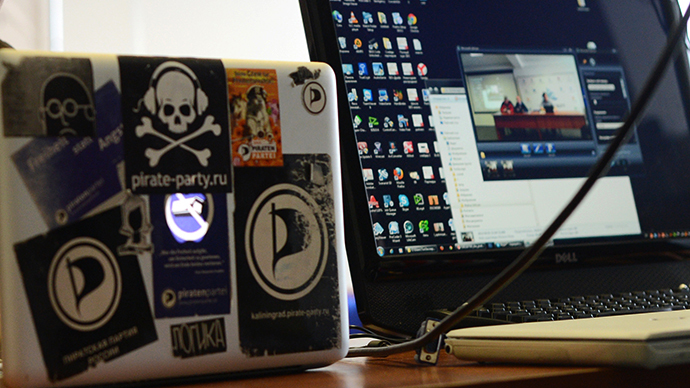Internet sector sounds alarm over fresh Russian anti-piracy bill

The Russian internet community has blasted as ‘unbalanced’ a bill that, if passed, would allow out-of-court closure of websites over suspicions of copyright infringement.
The bill’s current draft reads that the copyright holder can file a lawsuit against the hosting company that owns the servers with pirated content, or even links to such.
If the provider does not remove the questionable materials within three days after receiving a warrant, the whole website will be blocked until the court passes a ruling on the matter. If the court finds the copyright holder’s claims unfounded, the blockage must be lifted.
The bill also suggests that all copyright lawsuits be considered
by the Moscow City Court.
The 450-member State Duma passed the bill in the first reading on Friday by 257 votes to three, with one abstention.
When the bill was drafted, Russian media reported that it had not been discussed with the representatives of the Russian internet business or industry experts. One of the MPs who sponsored the bill - Robert Shlegel of United Russia party - acknowledged the fact, but said that all remarks will be duly considered in the preparations for the second reading.
The head of the Duma Committee for Criminal Law, Viktor Pinsky (United Russia), earlier said that the parliamentary majority had pledged full support for the bill and that he expected the house to fully approve it already next week.
One of Russia’s biggest internet companies, Yandex, has published its own suggestions on amending the anti-piracy law. According to the proposals, published in the company’s official blog, the law must concentrate on blocking the particular copyright-protected content and blocking the whole site should be only made applicable if there is no other way to make the violator comply with court orders.
Yandex also wrote that it would be reasonable to oblige the copyright holder to address the alleged violator before filing a lawsuit by allowing courts to accept the case only if the aggrieved party receives no reply within reasonable period of time.
Major internet holding Mail.Ru also suggested that legal action should be taken only in cases when internet providers fail to react to copyright complaints.
A Google representative has told the press that they have always been against bills that allow out-of court blocking of content by communications providers as such a practice would inevitably threaten internet resources specializing in legal distribution of content.
Other internet majors also noted that in the existing form the bill could easily become a tool of unfair competition and urged the lawmakers to consider altering the document.
Experts from the Russian Association of Electronic Communications noted that the suggested closure of whole websites would be a violation of the rights of law abiding clients who happen to use the same hosting and website.
Finally, representatives of internet businesses expressed surprise over the suggestion to move all cases to Moscow and said that such a step would discriminate against those who live and work outside the capital and also that it would give too much work to the city court without any feasible reason.
Copyright violations in the Russian sector of the internet are widespread and numerous, which caused the Office of the United States Trade Representative to put the country on its intellectual property rights “priority watch list”, along with such nations as China, Ukraine and Thailand.
Shlegel has estimated the annual damage from Russian internet pirates at 60 billion rubles, or almost US$2 billion.














